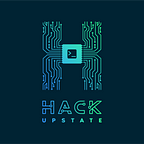Getting Started With Freelance Work
The following is written by Careers in Code’s career coach, Laura Thorne.
Looking for a way to make some extra cash and practice your new skills while in bootcamp or doing your job search? Here are some questions and answers to help you get started.
What is freelancing? How do I get paid?
Freelancing is when you are self-employed and work for a variety of clients on a contract-to-contract basis. You may have some long-term clients that ask you to continually maintain and update their software, or you may have short-term clients that ask you to develop a single project. The amount of clients you take on at a time can vary depending on the difficulty of the projects and your other commitments.
Some freelancers use platforms like Fiverr or UpWork to find work, while others leverage their network and platforms like LinkedIn to connect with potential clients.
What are the benefits of freelancing?
Freelancing may sound intimidating — after all, you are starting a business from scratch. In addition to the actual work you are doing, you also may have to deal with difficult clients, market yourself, keep track of expenses, etc.. But once you get the hang of things, freelancing really isn’t that scary. In fact, there are many benefits that may outweigh the fear factor.
In addition to making a few extra bucks, you also can build a portfolio outside of boot camp. Plus, you’ll learn a slew of soft skills, such as time management and communication. For the right kind of person, being your own boss and getting to work whenever and wherever you want is invaluable.
Should I be on a freelancing platform?
Many freelancers utilize platforms to get work, and for good reason. One of the primary benefits is that you cut down on marketing time — clients find you through a platform like Fiverr from a list of freelancers, communicate with you through the platform, and pay you through their software. Finding clients can oftentimes be just as consuming as the actual work, so do not take this benefit for granted. Another added benefit is that the contracts are built in, like using Uber, both the contractor and the client have reviews and you know you’re going to get paid in most cases.
The tradeoff for having an algorithm do the marketing for you is that these platforms often take a percentage of your pay or charge you a monthly fee to host your profile on their website. Moreover, many freelancers use these platforms, so your competition is likely just a click away. Whether you have basic coding knowledge or a highly specialized skill set, there’s probably someone out there who offers the same services you do.
So, how do you stand out amongst the competition? You can either be the price leader, which may lead to you needing to undervalue your work and have cheap clients. Or you can stand out from the competition by being different. For example, you might have a more complete profile with more details than others doing similar work, or you might let your personality shine and make your profile sound creative.
Currently popular freelance sites are: UpWork, Fiverr, and TopTal. This article from Developers For Hire has a comprehensive list with more details to help you choose.
How do I get started?
- Pick a niche. What is your skillset? App development? Web design? Automation? You might be able to do all three, but consider what you are most skilled at and what aligns best with your career goals beyond bootcamp.
- Pick a platform. If you decide to use a freelancing platform, you have to pick the right one. Some of the most used platforms for developers include Fiverr, UpWork, Freelancer, and Dice. There are also some developer-only freelancing websites such as Toptal. Look into a bunch and see what’s right for you. If you’re not using a platform, consider how you can leverage your personal and online network to find work.
- Gather examples for your portfolio. Whether you are finding work through a platform or through referrals, you will need to have a portfolio to show to potential clients. This can be challenging if you’re in the middle of bootcamp and haven’t worked in coding before. If you’re in this situation, I recommend helping out friends and family for free to start building a portfolio — it’s a win-win! Plus, you can put your capstone project on your portfolio once you graduate!
- Start with smaller jobs to build your confidence. Even if you’re an incredibly talented programmer, there’s a lot of skills required for freelancing that you’ll still have to develop. On your first project, you might invoice something incorrectly or there may be a lapse in communication with the client. Small mistakes are bound to happen, so taking on smaller jobs in the beginning can help you learn the ropes. Don’t let fear of not knowing everything stop you. Be honest about what you think you can do and don’t take on any jobs that are above your head; there are clients looking for all levels of pricing options and niches so you might be the solution they are looking for.
- Stay motivated. Getting started with freelancing is no easy feat, especially for coding work where there is already substantial competition. The hardest part is getting your first client and review. Despite the fees, you might consider doing real work for someone you know through a platform in order to get over that first hurdle.
Final thoughts
Freelancing isn’t for everyone but if you’re looking for a way to build your portfolio while you look for a job or want a stepping stone into working for yourself, this is a great opportunity to do that.
Laura Thorne is the Career Coach with Hack Upstate’s Careers in Code program. Careers in Code is a bootcamp for women and minorities. To learn more, go to careersincode.org
